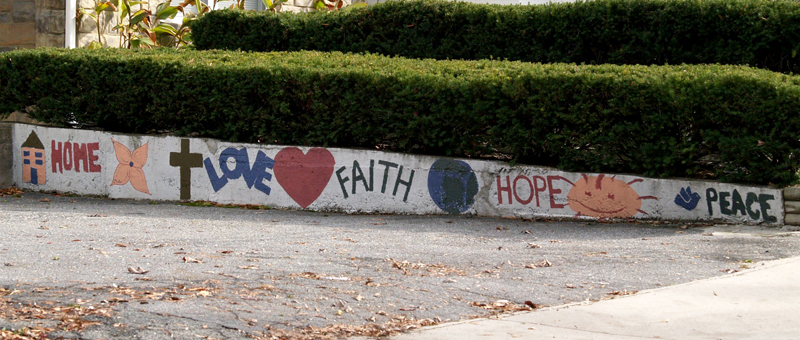And now, little children, abide in him, so that when he is revealed we may have confidence and not be put to shame before him at his coming. — 1 John 2:28
There have been many times I’ve wondered why I became Christian. As a person who struggles with the historical and present structures of organized church life, I have often wondered whether Christianity hasn’t soiled itself with the sins of patriarchy and racism to the point where we need something entirely new.
Of course, I can give you the real reason why I became Christian: as a college student who had studied and explored various world religions and found value in all of them, I felt that becoming Christian was the most natural step, connecting me with my own ancestral and cultural heritage as well as with the majority of my nation’s society. Though I enjoyed exploring the teachings of ancient Chinese philosophers such as Laozi, Mozi, and Kongzi (known in the West as Confucius), continuing to study their teachings and choosing to conform my life to one of their lineages would have been something of a self-isolating step in the United States; the community with which I could share my spiritual life would be relatively smaller, and not have much connection to my white European-American ancestry.
I’ll admit it wasn’t until after becoming Christian that I truly began to examine the structural evils of the present day, and how Christianity has played a part in them. But by then, something had changed in me: Christianity was my home. It no longer felt like strange cultural baggage that I didn’t quite know how to manage; it was a spacious house with many rooms, many different expressions and ways of following Jesus that I could try out and put on for myself.
And when I say that Christianity has become my home, I mean that in as literal a sense as anything else I could say about home. I’ve come to love Jesus and the tradition of believers that followed in his footsteps more passionately than I could have imagined, a mere 6+ years ago. And even though I struggle with so many of the structures of the way we Jesus followers organize ourselves, I am continually drawn back by my love for Jesus to search myself and the hearts of others for ways to make us all better followers of Jesus.
I think that’s what it means to abide in Jesus until he comes again. There’s no way we are going to be perfect at dismantling any of the structures we live in, and every person has their own limitations in their ability to encourage, welcome, and celebrate others’ steps towards the Kingdom. But in the meantime, we can abide in Him, and trust in Him, and have hope in Him, and rest in the knowledge that we are at home in a tradition that is not perfect but ever being perfected through the work of the Spirit. Such a place is one that I am willing to call my home.
Peter Levenstrong is Associate Rector at St. Gregory of Nyssa Episcopal Church in San Francisco. Having grown up non-religious, he enjoys bringing “a fresh pair of eyes” to examine the tradition of the Episopal Church, and is particularly interested in the intersection of faith and justice. You can find him online on Twitter at @_Rev_Lev.

